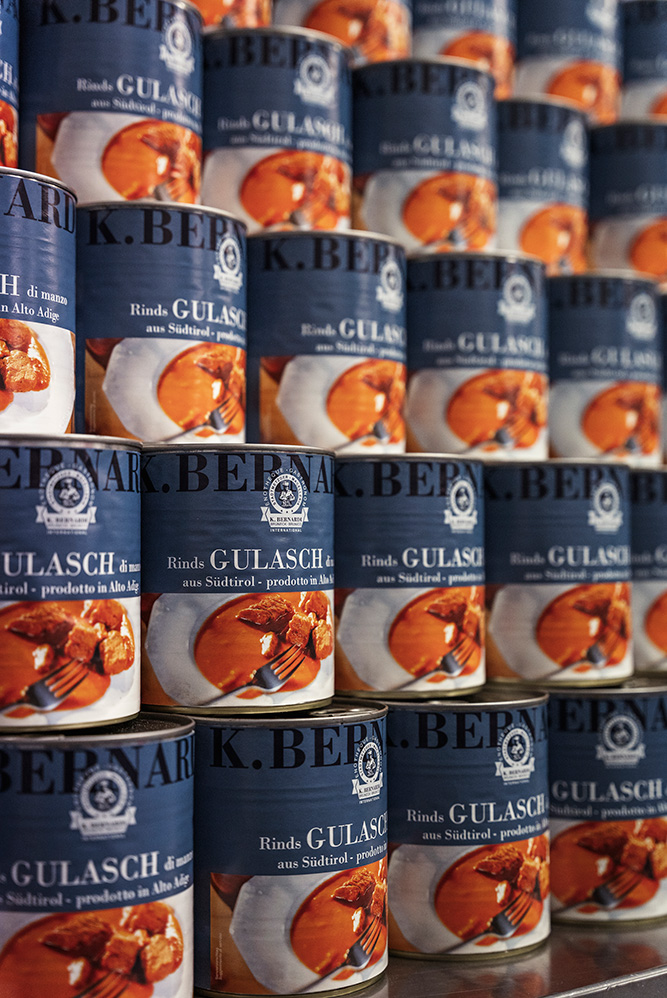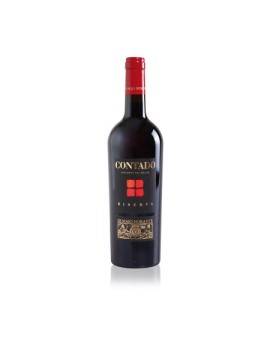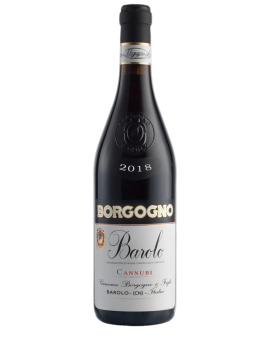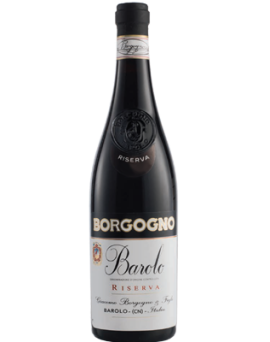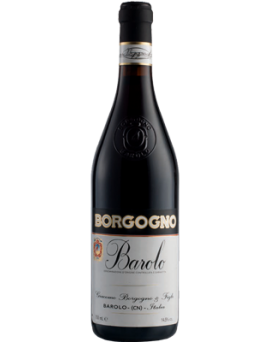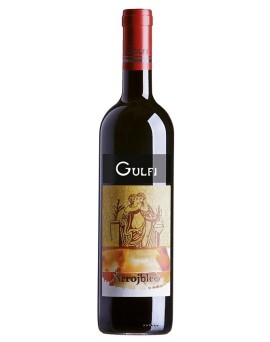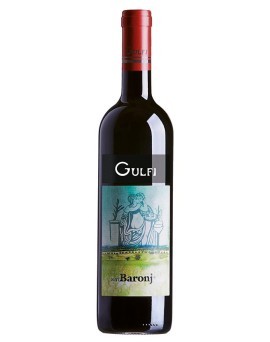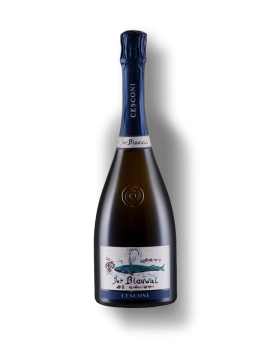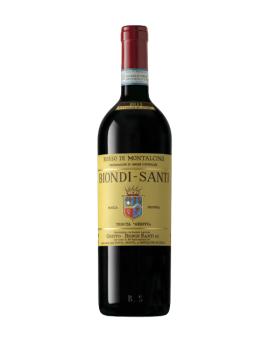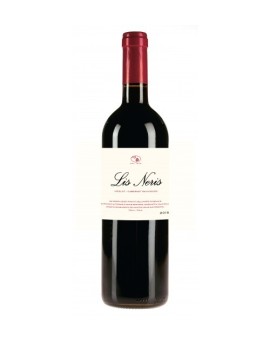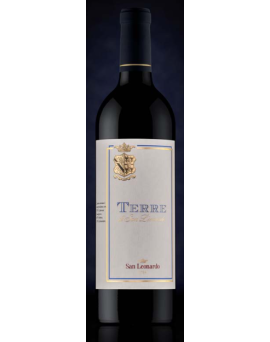Aglianico del Molise...
TYPE: Molise DOC Aglianico Riserva - ' Contado '.<br />PRODUCTION AREA: vineyard Contrada Camarda ( Pesaro ). Altitude 200 mt. Southeast exposure<br />VINE: Aglianico 100%.<br />TYPE OF SOIL: calcareous clay.<br />AGE OF THE VINEYARDS: average age 22 years.<br />VINIFICATION: in small steel fermenters with long maceration.<br />VINEYARD SYSTEM: espalier.<br />COLOUR: ruby red with garnet reflections.<br />BOUQUET: wide and intense bouquet with hints of ripe fruit.<br />PAIRINGS: goes well with savoury food, hearty first courses, game, meat and mature cheeses, also with vegetarian dishes such as stewed vegetables, legumes, baked<br />vegetable dishes such as aubergine parmigiana or vegetable soufflé.<br />TASTE: Soft and velvety in the mouth, very harmonious with good body, rightly tannic with a black cherry aftertaste.<br /><br />TASTING NOTES: Aglianico is an ancient vine, probably originating in Greece and introduced in Italy around the 7th-6th century BC. There are no certainties about the<br />origins of the name, which could be traced back to the ancient city of Elea (Eleanico), on the Tyrrhenian coast of Campania, or be more simply a mispronunciation of the<br />word Hellenico (for its Greek origin). The original name (Elleanico or Hellenico) became Aglianico during the Aragonese domination in the 15th century, due to the double L<br />pronounced gli in Spanish phonetic usage.Aglianico Contado Riserva Di Majo Norante: the ancient culture of the vine-dressing man combined with modernity and the future.<br /><br />DESCRIPTION: Di Majo Norante produces its wines exclusively from the 123 hectares of the ancient feud of the Marquis Norante di Santa Cristina. In Molise, wine has a<br />tradition that goes back to the Samnites and the Romans, who introduced the cultivation of the vine. The production methods are those handed down from one generation to<br />the next in the southern Apennines, always linked to the values of the peasant world. Di Majo Norante has sacrificed productivity and standardisation of taste in the constant<br />pursuit of quality and typicality, in the conviction that southern vines are better suited to the soil and climatic conditions of the Molise countryside. The predisposition to<br />select clones of indigenous southern vines through the study of their adaptability to the soil is at the origin of all Di Majo Norante wines. Grapes of ancient vines such as<br />Aglianico, Montepulciano, Sangiovese and Tintilia for the production of red wines, Falanghina and Greco for the production of white wines; Moscato reale for the sweet<br />passito. With regard to the cultivation of the grapes, the main aim is to maintain the biodiversity of the vineyards. Biodiversity is defined as the totality of all forms of life<br />present: plants, animals and micro-organisms. For this reason, the rules of organic farming have been followed for many years. All the vineyards are left with natural grassing<br />and spontaneous flowering to ensure the healthiness of the soil, guaranteeing the presence of the necessary micro-organisms and insects that are antagonists to many<br />parasites. Production is kept low to obtain the highest quality of grapes; thanks to the thinning out of the bunches, only the most beautiful, ripe and healthy ones reach the<br />harvest.<br /><br />AGEING: The wine is aged for about three years, one of which in barriques and tonneaux.<br />
Price
€16.80

